Dane County Judge Susan Crawford won a seat on the Wisconsin Supreme Court in a nationally watched election Tuesday, preserving the court's left-leaning majority for at least three years and opening the door to further landmark rulings on abortion and labor rights.
Crawford's victory over Waukesha County Circuit Court Judge Brad Schimel will be viewed as a rebuke of President Donald Trump and his top adviser, tech mogul Elon Musk, whose support was both a core part of Schimel's campaign and the focus of Crawford's attacks on her opponent.
Schimel is a former Republican state attorney general who was viewed as a reliably conservative vote on the Supreme Court if elected, while Crawford’s history of taking on liberal causes as a lawyer made her a favorite of Democrats.
The race was called by multiple outlets just before 9:15 p.m., at which point Crawford was besting former Vice President Kamala Harris’ performance in the 2024 election in many counties, ranging from Door County in northeast Wisconsin to the Madison area. Turnout in many parts of the state, including Dane County, broke records for an April election.
To chants of "Susan," "Susan," "Susan," Crawford told her supporters at the Park Hotel Madison, "Thank you for trusting me to serve you."
The newly elected justice acknowledged her opponent and thanked him for his "gracious" phone call conceding the race.
"I'm here tonight because I've spent my life fighting to do what's right. That's why I got into this race, to protect the fundamental rights and freedoms of all Wisconsinites," Crawford said.
Amidst erupting cheers, Crawford nodded to Musk's involvement in the race.
"As a little girl growing up in Chippewa Falls, I never could have imagined that I'd be taking on the richest man in the world," she said.
Schimel's concession Tuesday night came almost as swiftly as the election results.
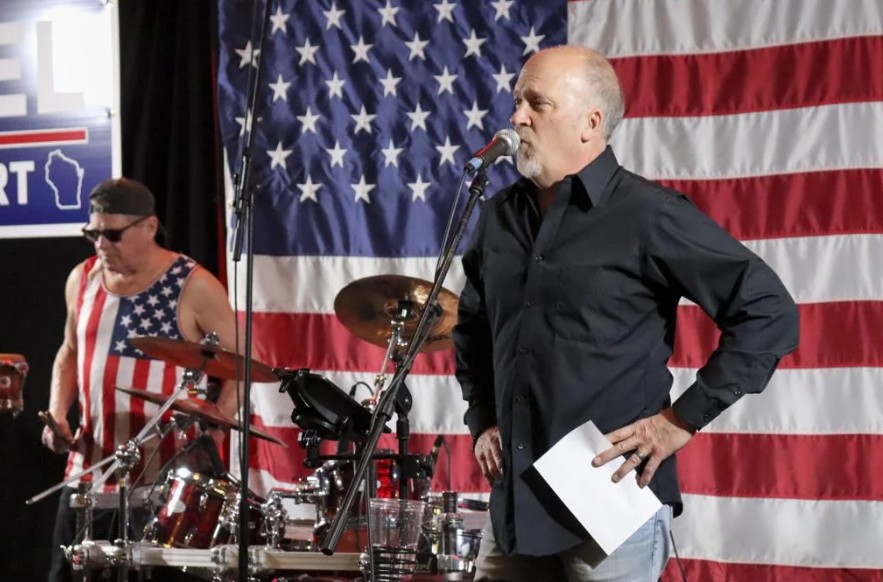
"You've got to accept the results," Schimel said to a crowd of supporters at the Marriott hotel in Waukesha. "I'm not here to make any joke. The numbers aren't going to turn around and we're not going to pull this off."
Terry Shelton and Shirley Smith felt a sense of relief at the early victory projections as they mingled with other supporters at Crawford’s election night watch party.
The Madison couple said they had spent recent weeks canvasing for Crawford.
“After Kamala, we couldn't get our hopes up,” Shelton said, referring to the former vice president's loss in November. “So we’ve been out in the rain, knocking door to door.”
Smith added that Trump's victory was a wake-up call for her and spurred her involvement in this election.
"The only thing we can do is fight back," she said.
The high court has held a 4-3 liberal majority since 2023, when Justice Janet Protasiewicz won what was at the time a historic race in terms of spending and attention for what have typically been sleepy campaigns.
The competitive race began in fall 2023, when Schimel announced his candidacy, and heated up last summer, when Justice Ann Walsh Bradley, the court’s longest tenured member, announced she would not seek re-election. Crawford announced her campaign soon after.
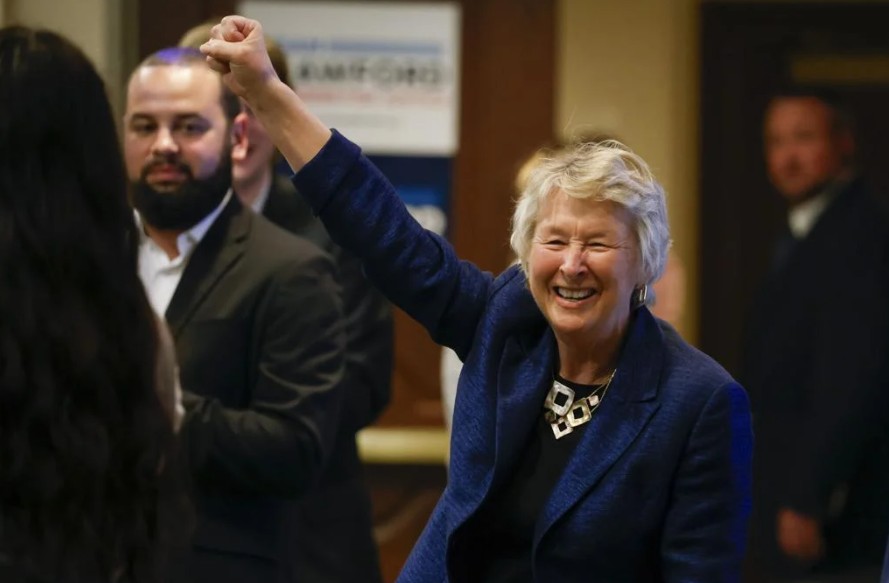
Ruthie Hauge / Cap Times)
Crawford thanked her predecessor Tuesday, saying Walsh Bradley leaves "an incredible legacy of service to our state."
"What an amazing victory," Walsh Bradley said to a cheering crowd. "Thirty years ago I was standing on a stage like this, newly elected. I could not be more proud than I am tonight to be standing on this stage and shortly introducing to you Justice-elect Susan Crawford."
Justices on the state’s highest court are elected to 10-year terms. The court has the power to overturn circuit court or Wisconsin Court of Appeals rulings. It has been increasingly asked to settle disputes over high-profile pieces of legislation and handle conflicts between Gov. Tony Evers and GOP legislators.
The Wisconsin high court race is the most expensive in American history, topping $100 million in spending among the two candidates and the outside groups backing them.
That included over $20 million in spending by conservative political action committees bankrolled by Musk in support of Schimel, with prominent Democratic donors like George Soros and Illinois Democratic Gov. JB Pritzker boosting Wisconsin Democrats.
Much of the rhetoric in the race centered on national issues, trends magnified by the involvement of figures like Trump, who endorsed Schimel 10 days before the election, and former President Barack Obama, who backed Crawford.
“If you had asked me … four weeks ago, I would have said it's not a referendum on the president. It's a race between two Wisconsin candidates who are mostly talking about their records as prosecutors,” said Charles Franklin, director of the Marquette University Law School poll. “But then everything changed about three three and a half weeks ago, as Musk emerged as a major figure in the race, and Democrats used him as a target.”
That includes voters like Dick Holthaus, who cast his ballot in Madison early. Pushing back against Musk’s involvement, he said, was a major factor in getting him to the polls.
“There’s always been the contributions but this is so out there,” he said.
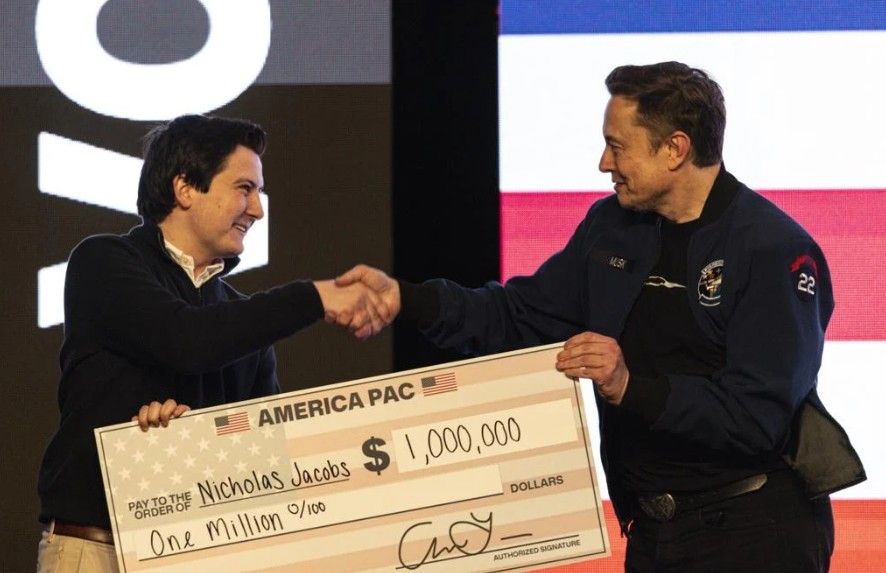
Musk's involvement in the race played an outsized role. His leadership of the federal Department of Government Efficiency and counsel to Trump has led to slashed spending in Washington, D.C., layoffs of tens of thousands of government workers and an uncertain future for many federal programs.
In an unprecedented move, Musk wrote $1 million checks to three Wisconsin voters who signed a petition opposing “activist judges.”
“The $1 million checks … it is very off putting. I don’t see how his support can help (Schimel),” Hothaus said in Madison.
The tech billionaire held a rally in Green Bay Sunday evening during which he delivered the checks — a move challenged by Wisconsin Democratic Attorney General Josh Kaul, who argued in a lawsuit filed with the state Supreme Court that Musk’s payments to voters violated a state law that bars “election bribery.”
The Supreme Court unanimously declined to take up Kaul’s lawsuit in a ruling Sunday.
While Musk’s ideas have been popular with most conservatives, polling has found them to be anathema to liberals and even a majority of independents in Wisconsin. Schimel’s plan centered on getting supporters of Trump who propelled the president to victory in Wisconsin last fall to turn out in April as well.
Musk’s turnout operation, too, focused on energizing Trump’s voters, offering cash payments for informing friends about the Supreme Court race. Musk even personally took the stage in Green Bay to proclaim that the “destiny of humanity” hinged on the outcome of the election.
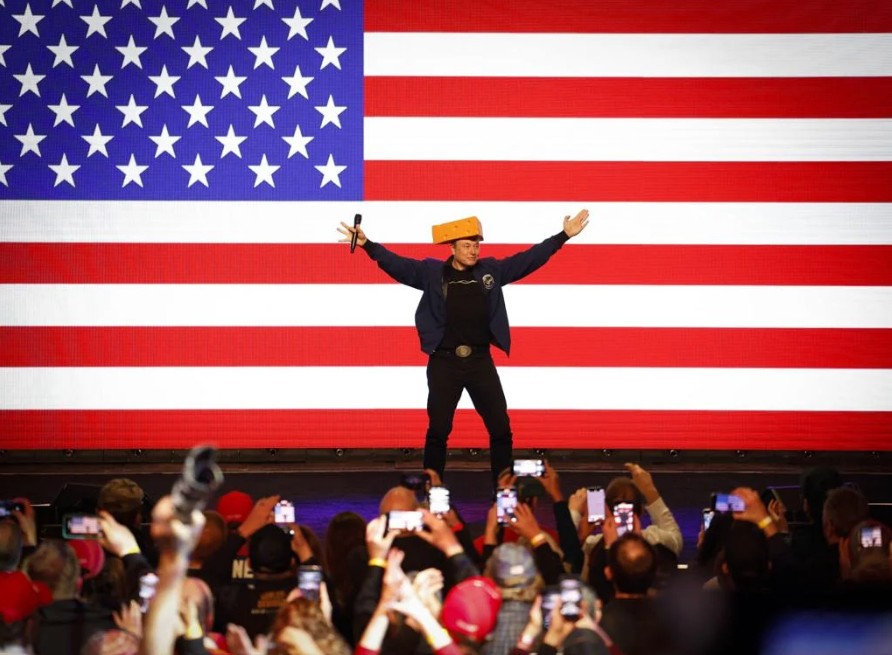
However, that effort failed to lift Schimel to victory.
Schimel opened the night by performing with his band, Four on the Floor, shortly after the polls closed. At that time, he told supporters at the Marriott in Waukesha that he was upbeat about his chances.
But about an hour later, Schimel took the stage to cries of shock from the audience, announcing he had called to concede the race to Crawford.
Democrats, by contrast, rolled out a playbook that helped them win four out of the last five Wisconsin Supreme Court races. They saw surging interest among liberals, who are increasingly more likely to vote in lower turnout races like spring elections.
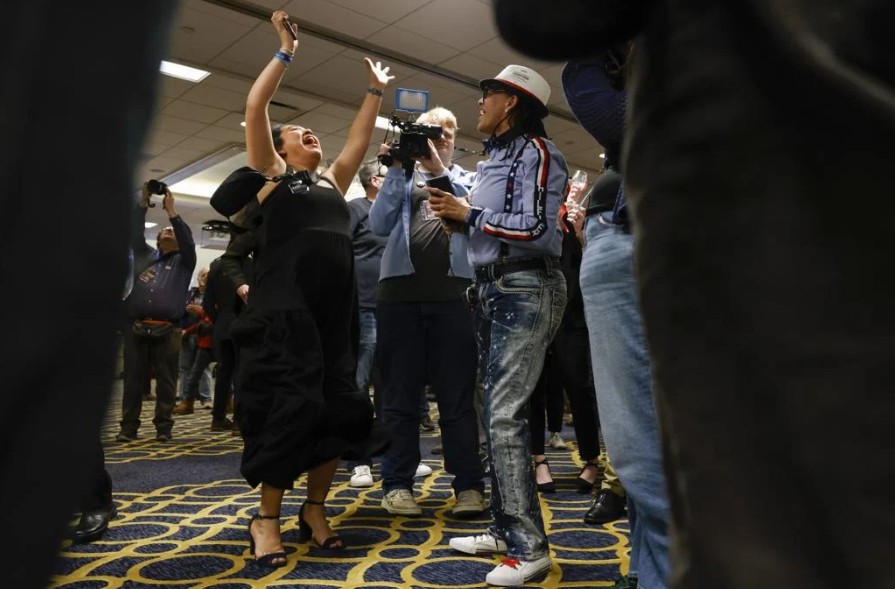
Control of the court has national implications, as it means a majority of left-leaning justices will hold control of the court until at least 2028. That liberal majority will hear any cases related to the administration of the 2028 election.
The election result also has implications for a host of other policy areas.
The court has agreed to take a case debating whether abortion rights are protected by the Wisconsin Constitution. The justices also are expected to hear a new challenge to Act 10, a 2011 law restricting the collective bargaining rights of public sector unions.
Democrats might also mount another challenge to the allowability of the state’s congressional maps, which dictate who voters can choose to represent them in the U.S. House.
The state’s justices rejected a lawsuit over the district lines for Congress last year, but U.S. House Minority Leader Hakeem Jeffries, D-N.Y., said the Wisconsin Supreme Court race was important because “we need to be able to revisit that and have fair lines.”
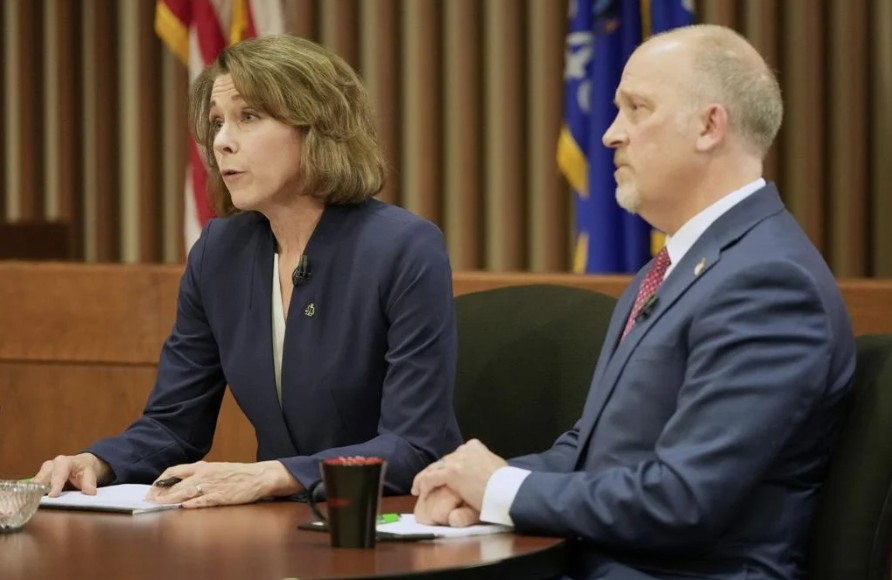
As for the election process itself, it remains to be seen whether state lawmakers, either in the legislative or judicial branches, will make any changes in response to the flood of cash in the high court race.
Crawford and Schimel both benefited from a loophole allowing donors to give unlimited amounts of money to state Republican and Democratic parties, funds that could be transferred to the candidates themselves.
Both candidates said they were open to strengthening requirements for when a state Supreme Court justice must recuse themselves, a fight that will likely only intensify in the years to come.
“We need to really get serious about campaign finance reform after the election, or else we will continue to break records,” said Nick Ramos, executive director of the Wisconsin Democracy Campaign. “We will continue to see our rules start to wither away, because everyone wants to try and put their thumb on the scale that has enough money to do so to try and see if they can play kingmaker and try and elect people into these seats.”
But with the 2026 election likely to be considered a bellwether for the midterm campaigns later that year, Anthony Chergosky, a professor of political science at the University of Wisconsin-La Crosse, said there is no reason to think electoral politics in the Dairyland will slow down next year, even though control of the court won’t be on the line.
“It is just truly weird that these state Supreme Court elections as being seen as a barometer for national politics,” Chergosky said. “But that seems to be where we are.”
[Andrew Bahl and Erin McGroarty are politics reporters for the Cap Times. They write about Wisconsin politics with a focus on state government and elections.]


Spread the word